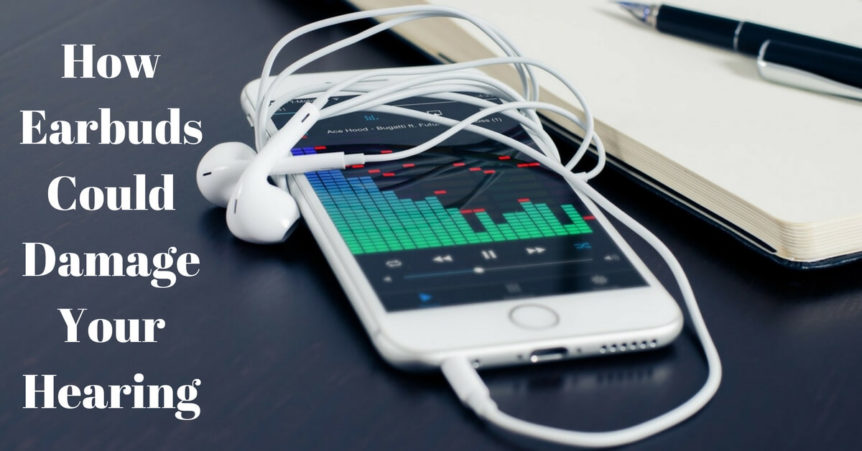The workings of our auditory system are surprisingly delicate, though we sometimes take healthy hearing for granted. Used to our bodies just showing up and doing what is asked of them, it’s easy to forget that it’s also our job to assist and protect them. That’s why paying attention to the ways we treat our ears is paramount. Something as ubiquitous as the popular earbud can do serious damage and lead to hearing loss if we’re not careful.
Are earbuds more dangerous than headphones?
Earbuds are incredibly popular. Take a brief visual survey today and notice that the vast majority of people you see will be sporting these in-ear devices over traditional over the ear headphones. Earbuds sit inside the ear canal, channeling sound directly at your ear. They also don’t have much in the way of noise cancelling capabilities, which means that the distracting sounds happening around you remain present. It’s natural to crank the volume on your device to use sheer volume as a way to drown out the outside world.
But earbuds have not been proven to be more damaging than the classic over the ear headphones many of us grew up with. The now almost retro design of headphones traps volume in the ear to carry just as much risk of eventual hearing loss. Basic headphone brands don’t offer noise cancellation protection, either, so you’re still turning up those tunes to overwhelm the competing outside racket.
Volume, volume, volume
The method of delivery is less important than the levels of noise you’re directing towards the sensitive auditory system. The average smartphone is capable of harmful volume levels, though they don’t come with that warning. Some phones allow you to crank your music as high as 120 decibels. If you were to listen to a full album at that level, there is a substantial risk that you would have noticeable hearing loss after that last track. The hazards of careless volume levels are so real that the World Health Organization warns that 1.1 billion teens and young adults are at risk of developing hearing loss strictly because of “personal audio devices.”
Noise induced hearing loss isn’t cool
While the enjoyment of losing yourself in a song or album is very real, so is the risk of doing long term and irreversible damage to your hearing health. Noise induced hearing loss is a permanent hearing impairment that comes from prolonged exposure to high levels of noise. One in 10 Americans has a hearing loss that affects their ability to understand normal speech and the National Institute of Health says that approximately 15% of Americans between the ages of 20-69 already have high frequency hearing loss.
What does too loud sound like?
Take stock of how your ears feel after a session of earbud use. Are your ears ringing? Is sound clear or has it become muddled and muted? If there is a noticeable change in the way your hearing is functioning, then you might be at risk of future hearing loss.
What does hearing loss sound like?
Because it is an invisible condition, it is difficult to know at first if you are experiencing hearing loss. The symptoms can be subtle at first, but noise induced hearing loss tends to worsen over time. Signs to watch for include constantly having to turn volume levels on televisions and listening devices higher and higher in order to clearly hear. Conversations might also become more difficult, as hearing loss first makes itself known with the distortion of high frequency tones.
Ways to prevent noise induced hearing loss
No matter the current condition of your hearing health, future compound hearing loss should always be avoided. Aaron Pearlman, an otolaryngologist at Weill Cornell Medicine and New York-Presbyterian advises everyone to keep their volume control centered solidly in the middle, or perhaps even a bit to the left. “If you do that, you’re never going to have it loud enough to damage your ears,” he advises.
Interrupt the cycle
If hearing loss has begun to present itself, seek treatment immediately. All avenues of maintaining functioning hearing first begins with a reliable hearing test with us at Comprehensive Ear and Hearing. Once you know the levels of hearing loss you’re working with, our knowledgeable team can assist you in seeking next steps.


